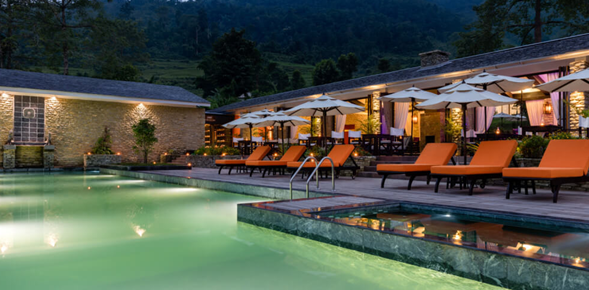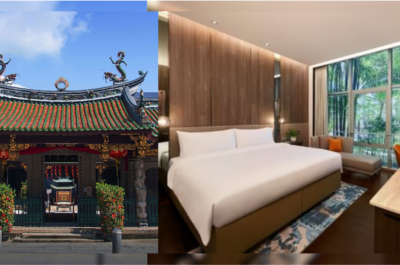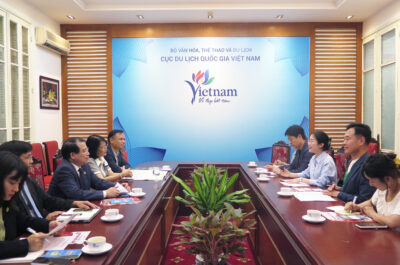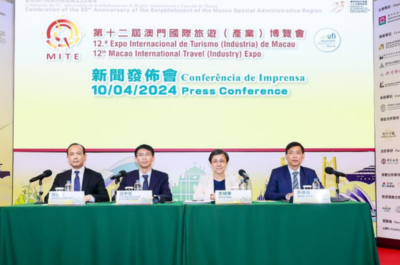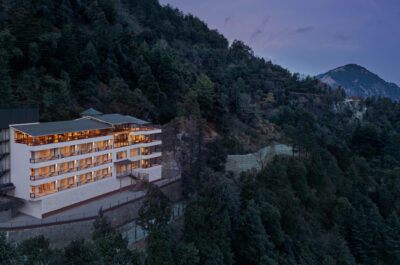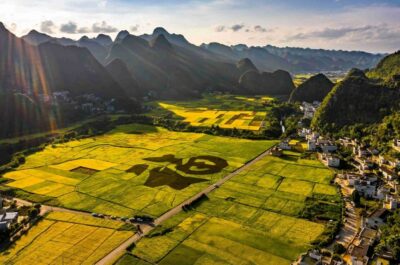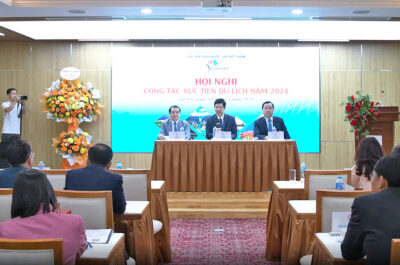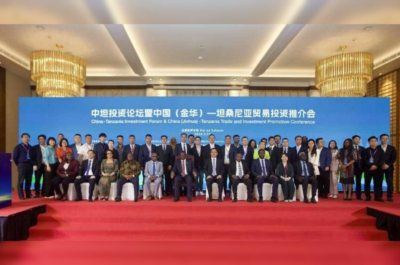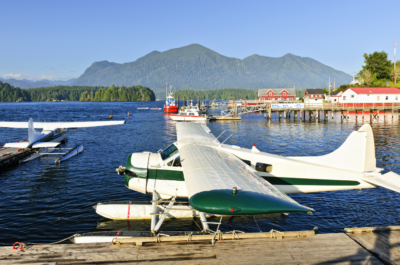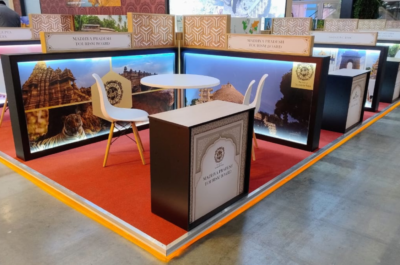The new Pavilions Himalayas has already won multiple awards, placed among the top four resorts in Asia at the prestigious 2016 Asia Hotel Design Awards in Singapore, and admitted into the exclusive, handpicked global collection of sustainable and eco-friendly hotels, Green Pearls.
HONG KONG – Hong Kong architecture magazine Perspective has honoured architect and urban planner Alex Shrestha in its annual ‘40 Under 40’ awards for designing recently opened The Pavilions Himalayas, one of the world’s ‘greenest’ hideaways in Pokhara, Nepal.
Opened in November 2015, The Pavilions Himalayas is part of The Pavilions Global Collection founded by Hong Kong-based laywer Gordon Oldham, which also includes luxury boutique resorts in Bali and Phuket.
The new Pavilions Himalayas has already won multiple awards, placed among the top four resorts in Asia at the prestigious 2016 Asia Hotel Design Awards in Singapore, and admitted into the exclusive, handpicked global collection of sustainable and eco-friendly hotels, Green Pearls.
The eco-friendly concept of the new high-end boutique retreat which runs mostly on solar power, recycles its waste water, uses biogas for cooking, and grows most of its own food, was recognised for “shaping the design world in the decades to come”. Designer Shrestha was individually applauded for “representing a new generation of architects creating a positive impact across the Asian landscape”.
The coveted awards recognise 40 ‘design leaders of tomorrow’ under the age of 40 from the fields of art, architecture, interior design, graphic design and new media, product design, and fashion and accessories.
With15 luxurious bungalows in a valley near Phewa Lake in Nepal’s top trekking destination, The Pavilions Himalayas was singled out for its uniquely minimal ecological footprint, providing guests a luxurious “off-the-grid experience”.
The retreat generates all its own power from a solar array on the roof of the elegantly designed club house. A quarter of the water used is harvested rain, while soapy ‘grey water’ from sinks and showers is filtered into flush tanks, and sewage pipes empty into a large underground biogas digester, where it mixes with farm manure to generate cooking gas for the kitchen – generating the equivalent of eight gas cylinders a week.
Walls and windows are so well insulated that air conditioners are unnecessary and room temperature stays the same even in the heat of the Pokhara summer.
All plastic used is biodegradable, toothbrushes and combs are wooden from sustainable forests, shampoo and paper soap are all home-made from herbs and aromatic plants found in surrounding forests. The resort has its own mineral water so no plastic bottles are used. A farm of 12 cows and buffalos, goats, chicken and even boars provides meat for the menu and manure for the biogas plant. Residue from the digesters in turn fertilise vegetable patches.
The Pavilions Himalayas also closely integrates with the local community, set among farm houses, interspersed with corn fields and vegetable patches, and alongside paths that farmers use daily to reach their terrace fields.
Alex Shrestha integrated the resort into the landscape’s contours with minimal disturbance to the natural landscape. Building was mostly from local materials – with stones hewn on site, slate roofing from the valley, locally produced timber and Newari-Tibetan interiors by local craftsmen.
The unique concept also plans to plough 70 per cent of profits into charity projects for disadvantaged children.
“It’s a positive Robin Hood model, a labour of love to pay for our social work,” says Douglas Maclagan, who co-owns the project with Hong Kong –based lawyer Gordon Oldham.
“We set out to build one of the world’s most eco-green hotels that would be ecologically and economically sustainable, and I want guests to feel that their support continues long after their holiday in Nepal.”
“I have always wanted to come back to Nepal and do something to make my country proud,” said Shrestha, who heads Patan-based firm Wonaw & Associates. “I was challenged by Douglas Maclagan’s ambition to make one of the world’s most unique hotels not just in terms of design, but also its environmental and social contribution to the community and country. He was firmly committed to a 100 per cent eco-green project, and this raised the cost, but it has paid off because the resort is a win-win that puts out a strong environmental statement, makes total economic sense and serves a social cause.”
Theodore is the Co-Founder and Managing Editor of TravelDailyNews Media Network; his responsibilities include business development and planning for TravelDailyNews long-term opportunities.













